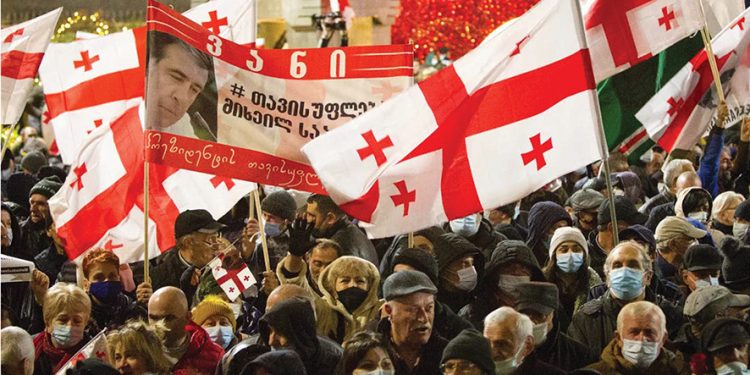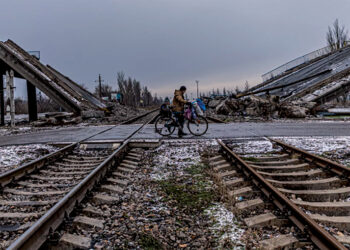The earthquake-like collapse of the USSR was embraced by the civilized world with unfeigned applause and exaltation. The consequent independence of the 15 former Soviet republics, Georgia among them, has been taken for granted by the international community, which welcomed all of them almost simultaneously into the system of political and economic interaction between the nations, making new plans and building new hopes for a fairer and happier life around the globe. Question: Has the naively presumed universal bliss be seen in reality? The impression is “no.” One expert opinion maintains that the Soviet Union could have suggested a standard of living that would have looked and felt no less agreeable compared to what we have today in the post-Soviet republics. They say it was not socialism that hampered the advent of a quality lifestyle in the soviet land, but the way it was handled by the soviet people and its leadership, a handy substantiation of which is the fact that socialism has not prevented China from becoming the second most powerful economy in the contemporary world.
Let’s say the Intelligent Designer’s blueprint came true, and as a direct outcome of it, we are today enjoying a free, democratic and independent Sakartvelo, with all its accompanying merits and flaws. One of those flaws is the verity that the good people of this country have never benefitted to the fullest extent the fruits of the painfully acquired freedom, democracy and independence. Why is that? What failed? The lost-in-doubts and confused-to-stupor nation has always fallen victim to radical splits. As soon as the soviet era was over, we came apart, having lived through a gory resistance to the leftovers of the soviet regime, the civil war and the demise of the first presidency of the nation, supported by an overwhelming popular vote. Then we fought to get our act together and continue living as a civilized independent nation, having suffered the revolutionary change of the government, finally learning the political art of a peaceful change of power. But nothing has helped, nothing has changed, and nobody has given up that untamed longing to grab the reins of authority. Right now, the internal struggle for political supremacy is reaching a dangerous acme as all seek the treasured spot at the top.
The challenge is brewing between the two conceptual models for building the country’s future. One is like a glowing sample of liberalism and is unequivocally oriented to the West, meaning the potential initiation of Georgia into Euro-Atlantic structures, drastically and angrily negating anything that connects Georgia with Russia or that procreates the possibility of future cooperation with the aggressive Bear. This model sees us enjoying every possible support from Western social institutions and political figures. The second concept, reflecting moderate conservatism, probes into the possibility of triangular interaction: West-Georgia-Russia, basing its plan on the potential prosperity of Georgia emanating from the West, and eliminating the potential aggression of Russia, based on the fear of revisiting past experience, though in certain divergence from Western dictates, elevating traditional national values into the rank of a political struggle for freedom and independence.
Both perceptions deserve nationwide heed and balanced discussion, yet the politicians responsible for reaching the most optimal bottom-line are driving their notions home in an extremely antagonistic and destructive way, so that their furious narratives only make the electorate feel insecure, confused and edgy.
In the end, violence begets violence, and the senseless hostilities generated in the political crucible only augment the daily belligerency between the sides. What adds fuel to the fire is that the political hardliners are joined by the engaged-by-them mass-media proxies who would do anything at their disposal to carry out the orders of their forceful patrons.
The aggressive insistence on the truth, invented by contemporary politicians and their media, is a habitual behavioral paradigm everywhere in the world, but this phenomenon knows no limits in Georgia, and is slowing down the achievement of the ultimate goal of turning the country into a genuine democracy, compatible with every international norm, reflected in now-functioning conventions, agreements and declarations. The clash between the above-described ideals is a totally acceptable detail of the political process, but there is no disinterested intellectual force in the world who would say which one is better for Georgia’s future. All of them, just all of them, are flagrantly biased.
Op-Ed by Nugzar B. Ruhadze














